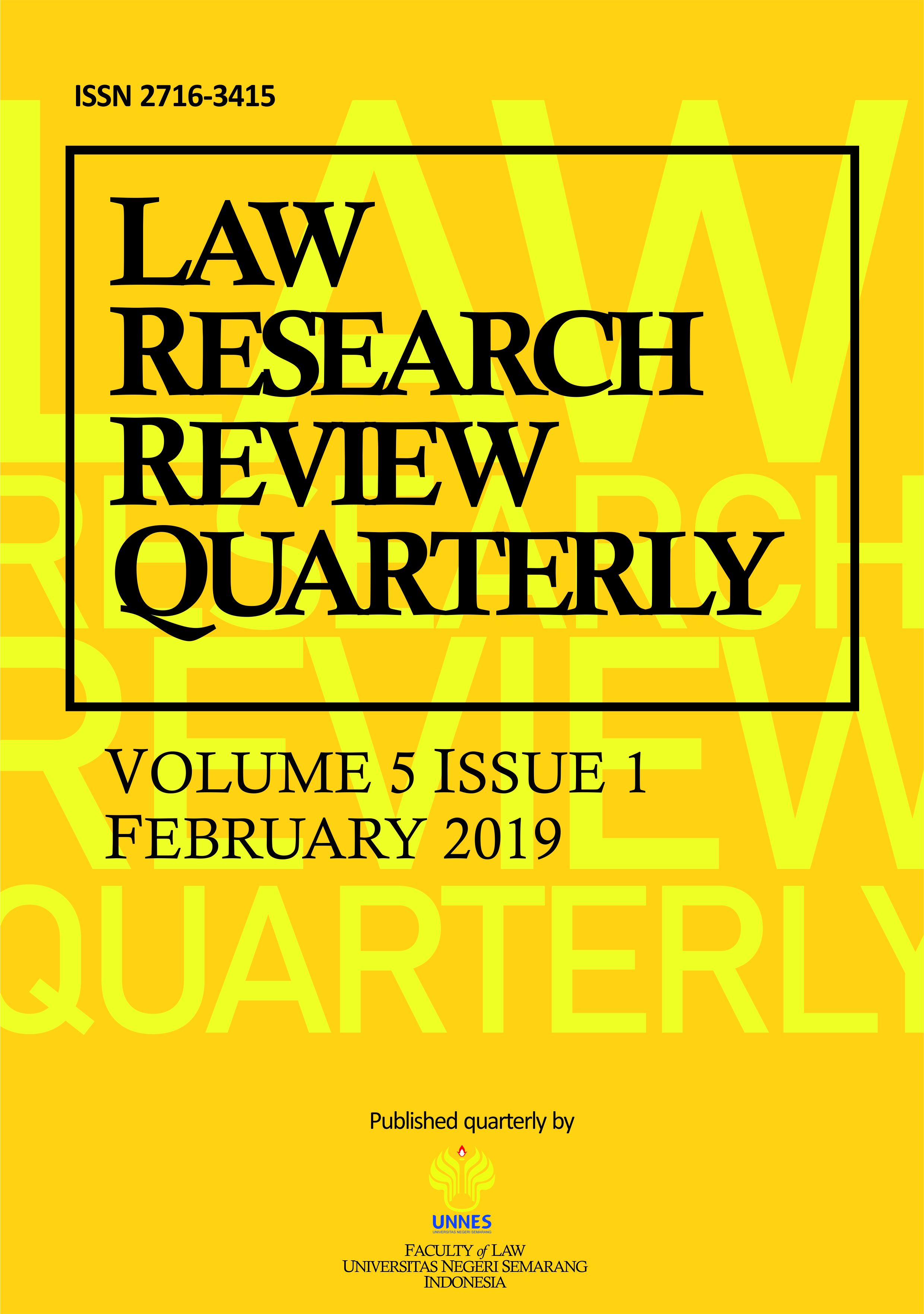Abuse of Authority Article 3 of Law No. 31 of 1999 concerning Eradication of Corruption in Criminal Law Review
Main Article Content
Abstract
Research on the concept of abuse of authority in the Constitution of Corruption in Indonesia, describes the problem together with the concept of abuse of authority in court decisions. The elaboration with normative research methods ultimately results in showing that the formulation of violations in Article 3 of the PTPK Law is inconsistent. The location of inconsistency is the first element of violation ("with the aim of enriching oneself, others, or corporations") formulated in the material, while the 3rd element ("may endanger the country's finances or economy") is formulated formally. On this basis, the elements of violation "abuse the authority, opportunity, or means they have because of their position / position". As a solution, presumably with the nature given in the haeren between the concept of "haram" with the concept of "abuse of authority" and in practice evidence of abuse of authority is difficult, because assessing the abuse of authority related to factual, it is recommended for Article 3 of Law No. 31 of 1999 jo. UU no. 20 of 2001 just deleted. Another reason is: the element of violation of the law in Article 2 of Law no. 31 of 1999 jo. Law Number 20 of 2001 has been able to accommodate the elements of "abuse of authority", because "abuse of authority" is the "species" of the "genus" element of "breaking the law".
Article Details
All writings published in this journal are personal views of the authors and do not represent the views of this journal and the author's affiliated institutions. Author(s) are retain the copyrights of the Article. However, before publishing, it is required to obtain written confirmation from Author(s) in order to ensure the originality (Author Statement of Originality). The statement is to be signed by at least one of the authors who have obtained the assent of the co-author(s) where applicable.This work licensed under a Creative Commons Attribution-ShareAlike 4.0 International (CC BY-SA 4.0)
References
Black, Henry Campbell. 1891. Black's Law Dictionary with Pronunciations. Inggris: Centennial Edition
Handjon, Philipus Mandiri , Discretionary Power dan Asas-Asas Umum Pemerintahan Yang Baik (AAUPB), Paper, disampaikan pada Seminar Nasional “Aspek Pertanggung jawaban Pidana Dalam Kebijakan Publik Dari Tindak Pidana Konsepâ€, Semarang 6-7 Mei 2004.
Minarno, Nur Basuki. 2009. Penyalahgunaan Wewenang dan Tindak Pidana Korupsi dalam Pengelolaan Keuangan Daerah. Surabaya: Laksbang Mediatama
Sahlan, M. 2016. Unsur Menyalahgunakan Kewenangan dalam Tindak Pidana Korupsi sebagai Kompetensi Absolut Peradilan Administrasi. Jurnal Hukum IUS QUIA IUSTUM
A.N. Ilyas Syamsudin, & Y. B. Badoeda. 2004. SF. Marbu: Analisis Teoritik Yuridik Kasus Akbar Tandjung dari Optik Hukum Administrasi Negara. Jakarta: Pustaka sinar harapan.widyaningtyas
Wantjik Saleh, K. 1983. Tindak Pidana Korupsi Dan Suap. Jakarta: Ghalia Indonesia
Facruddin, I. 2004. , Pengawasan Peradilan Administrasi terhadap Tindakan Pemerintah. Bandung: Alumni
Stenberg, Sheldon S. & Stenberg, David T. 1999. Government, Ethics and Managers; Penyelewengan Aparat Pemerintah. Bandung: Rosdakarya
Atmasasmita, R. 2012. Teori Hukum Integratif: Rekonstruksi terhadap Teori Hukum Pembangunan dan Teori Hukum Progresif. Yogyakarta: Genta Publshing
